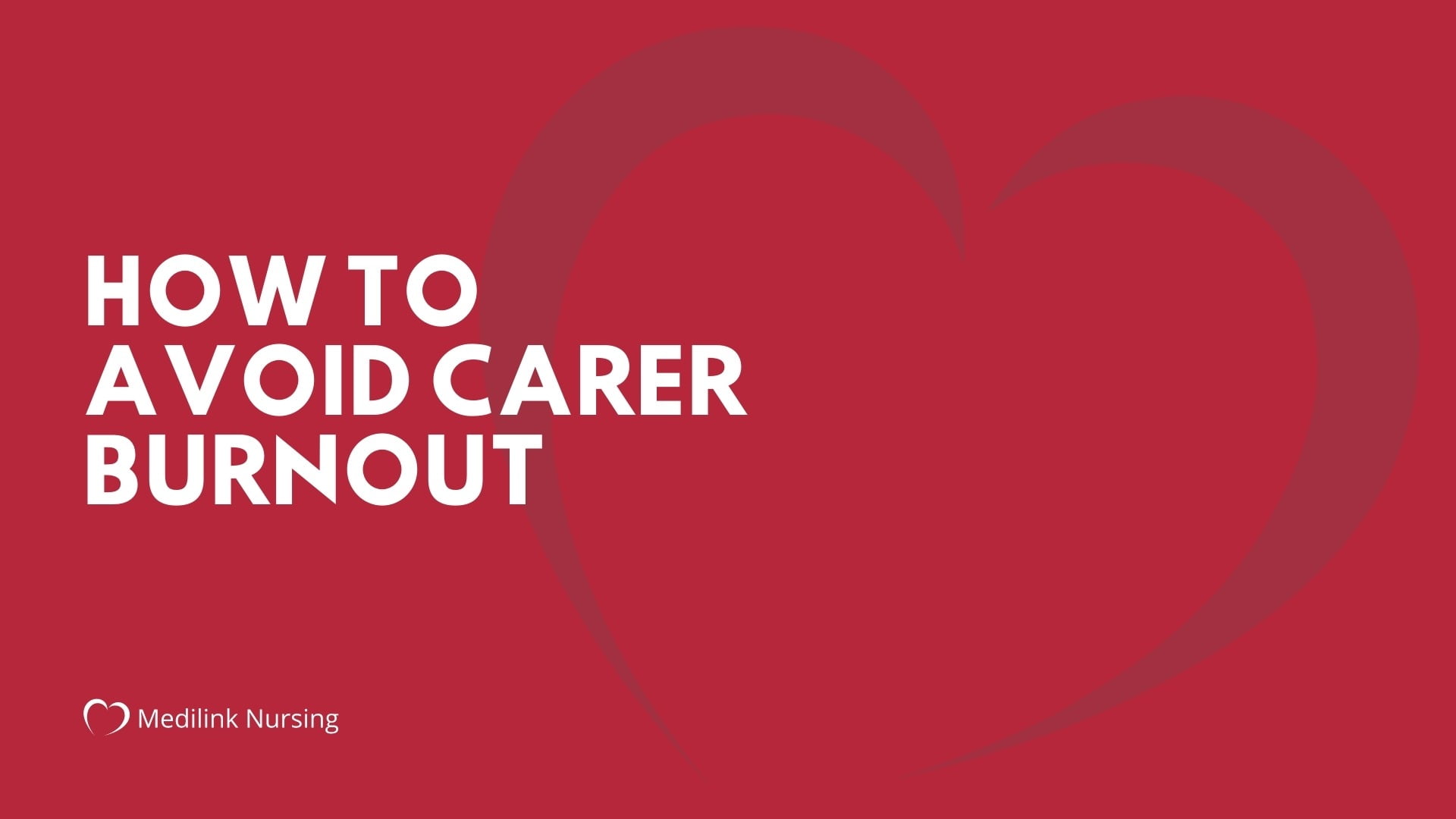How to Avoid Carer Burnout
Carer burnout is never a pleasant experience and something that many carers suffer with each year.
Carer burnout can affect an individual’s ability to function and can lead to further things such as long-term depression. Carer burnout is a state of physical, emotional, and mental exhaustion that can affect anyone. Carer burnout can happen to both paid and unpaid carers, and strike in the same way.
So how can carers recognise symptoms, and try to overcome, burnout?

What Are Carer Burnout Symptoms?
There are multiple signs that a burnout may be happening, but here are some of the most common burnout symptoms, which are shared by other caregivers:
- Difficulty relaxing.
- Eating and drinking more or less than usual.
- Out of character, angry outbursts.
- Struggling to get to sleep.
- Not wanting to see friends and family.
- Feeling irritable and having a lack of patience.
Why Does Carer Burnout Happen?
There can be many reasons why carers suffer from burnout, and sometimes there is no one big reason, just a build up of small ones.
Often various factors work together, and some of these include working too many hours, not getting enough rest, and emotional overload. In the case of unpaid carers, it can be because there is no respite from it and whilst an unpaid carer may gladly look after a friend or family member as they need, it can sometimes become too much when there is no escape from caring for someone.
Providing care for others is both a mentally and physically draining task, and it can become easy to find yourself overwhelmed with it all.
Tackling Burnout
One of the best ways to tackle burnout is to try to regain a better balance in your week. Your role might be to care for others, but you also need to look after yourself.
Look at how you could do this, maybe writing out a list or mind map on paper. Break it down with how you are feeling, what you want to improve in your life, and try to build up from there.
Are you getting enough rest, and looking after yourself by visiting the GP when there is something wrong? You can read more about depression and stress in this post by Carers UK by clicking here.
Asking a family member, friend or the professionals for help could be the way to go – There is sometimes more support out there if you ask for it.

Ways to Help Fight Carer Burnout
There is no one-size-fits-all method that can help everyone. All people are different, meaning we all find some tactics more helpful than others.
Here are some suggestions which you could try to help fight your burnout or prevent carer burnout from happening.
Leave The Non-Essential Things Behind
Choose what you think is important and build things around that, say no to the things which are not essential to your life and won’t have a positive impact.
Choose Things That You Enjoy
This could be various things, from walking the dog to redecorating the living room. If you want to relax, a bit of Netflix and a pamper day could do just the trick to help avoid carer burnout before it happens.
Start a Diary
Many people who write things down say that it helps them deal with life better.
Being able to get across your thoughts and feelings and put it on paper helps you understand things in more detail. It could be how you’re feeling that day, what you did, or your goals for the upcoming week.
Writing down the positives of the day will help you see that not everything in your life is negative. Just a few minutes a day can make the world of difference.
It can also be a lot easier to tell a diary how you really feel, rather than say it to someone else.
Letting Bad Days Go
People feel different emotions all the time. If you are angry or frustrated at the end of a day, that’s completely normal and not something to beat yourself up over.
Try to sleep, and wake up in the morning with the mindset that today is a new, fresh day and a fresh start.
Summary – Carer Burnout
In summary, caring for others can be challenging, but it’s important to take care of yourself while caring for someone else. By practising self-care, setting boundaries, seeking support, and taking breaks, you can avoid carer burnout and maintain your physical and emotional well-being. Remember that taking care of yourself is not selfish; it’s essential for both you and the person/people you are caring for.
We’ve also created a guide to staying positive as a Carer, which you can read by clicking here.
We hope these resources help, but do remember, you are not alone. Many people struggle with caring at some point in their lives, the best way you can look after others, is to look after yourself as well. You are important.
Further Reading:
If you found this page useful, you might like to read our posts on:
Maintaining independence in Residential Homes
Tips to help residents get a good night’s sleep
What makes a good carer?


